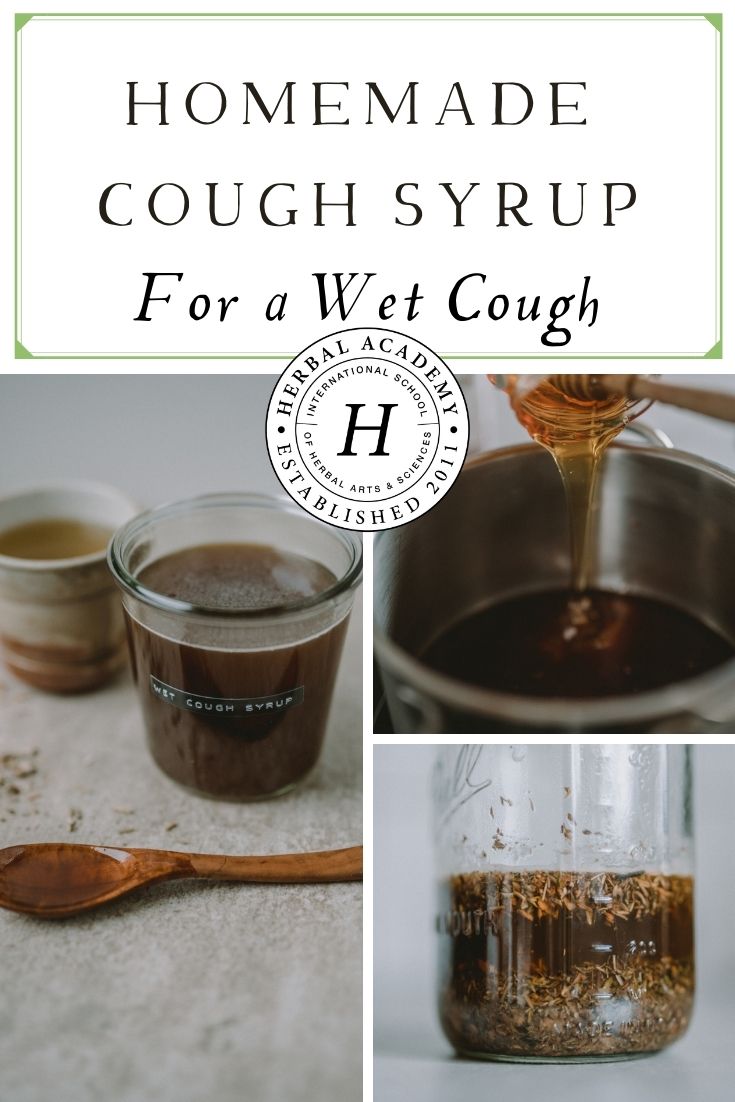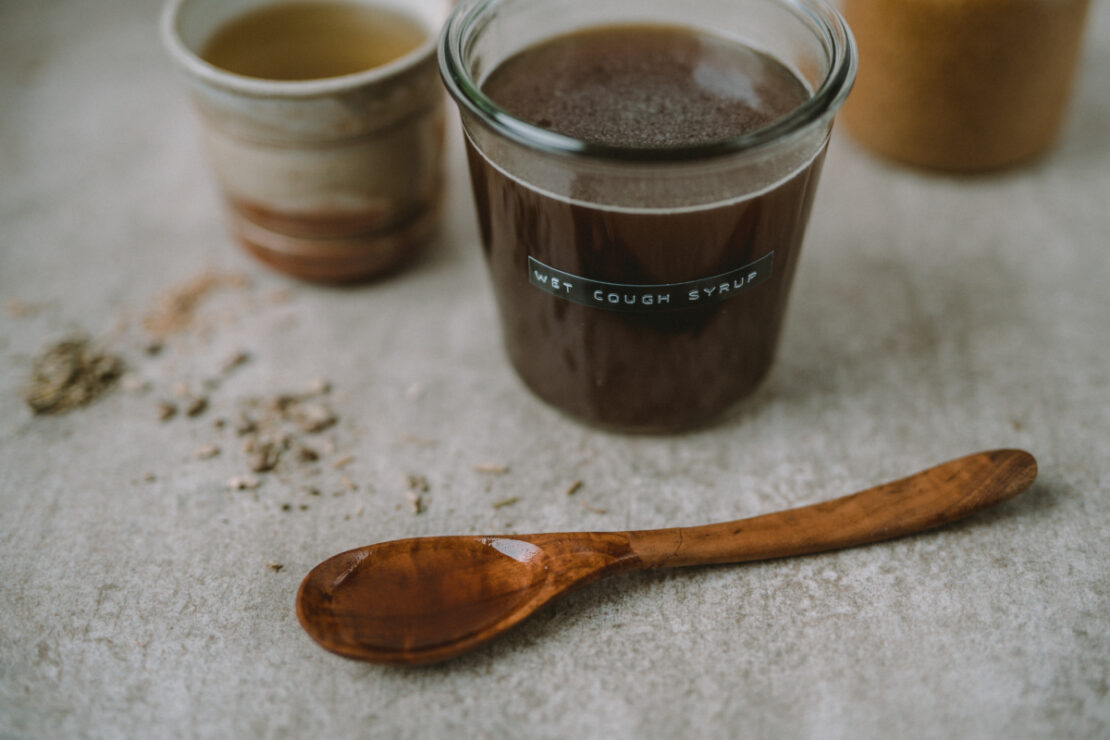
Homemade Cough Syrup for a Wet Cough
Late winter is the time of year in which heavy, wet conditions can start to really settle in our lungs. Luckily, nature’s apothecary has many beneficial plant allies for coughs and colds that can support you in the form of an herbal homemade cough syrup when you most need it!
This herbal cough syrup isn’t designed to be suppress coughing. But it’s calming and therefore the coughing is not as violent and irritating. Anyone who has ever been kept awake all night by a bad cough knows how disruptive and even painful a bad cough can be. The soothing properties in this Homemade Cough Syrup for a Wet cough work together with expectorant effects—getting the gunk out of your body smoothly!
Learn how to easily prepare your own homemade cough syrup, including some well-known respiratory supporting herbs for the colder months!
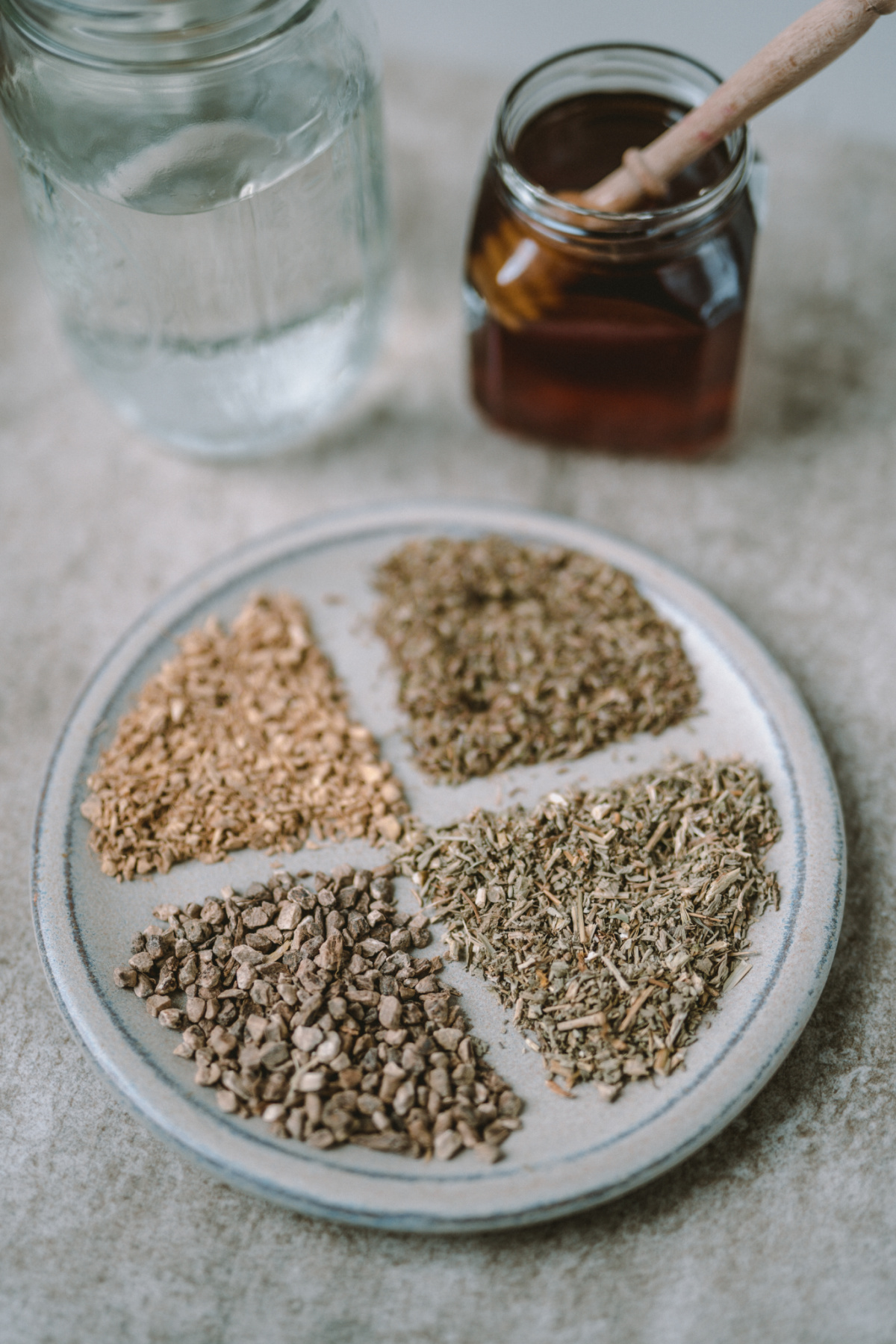
Herbal Allies For A Wet Cough
First, let’s cover some herbs that are wonderful for soothing a wet cough. Remember to always thoroughly research each herb you choose so that you are aware of any personal safety concerns or contraindications.
Thyme – Thymus vulgaris (leaf)
Although its original herbal uses have been largely forgotten in favor of its role in the kitchen, thyme once held an important place in home herbalism, especially in winter.
The most noted constituent of thyme, thymol, is expectorant, antispasmodic, antimicrobial, antitussive, and bronchodilating. Thyme can be beneficial to soothe acute or chronic respiratory issues including coughs and bronchitis (Bone & Mills, 2013; Tierra, 2003). In addition, this warming spice is incorporated into winter dishes & beverages to help the body adapt to the cold.
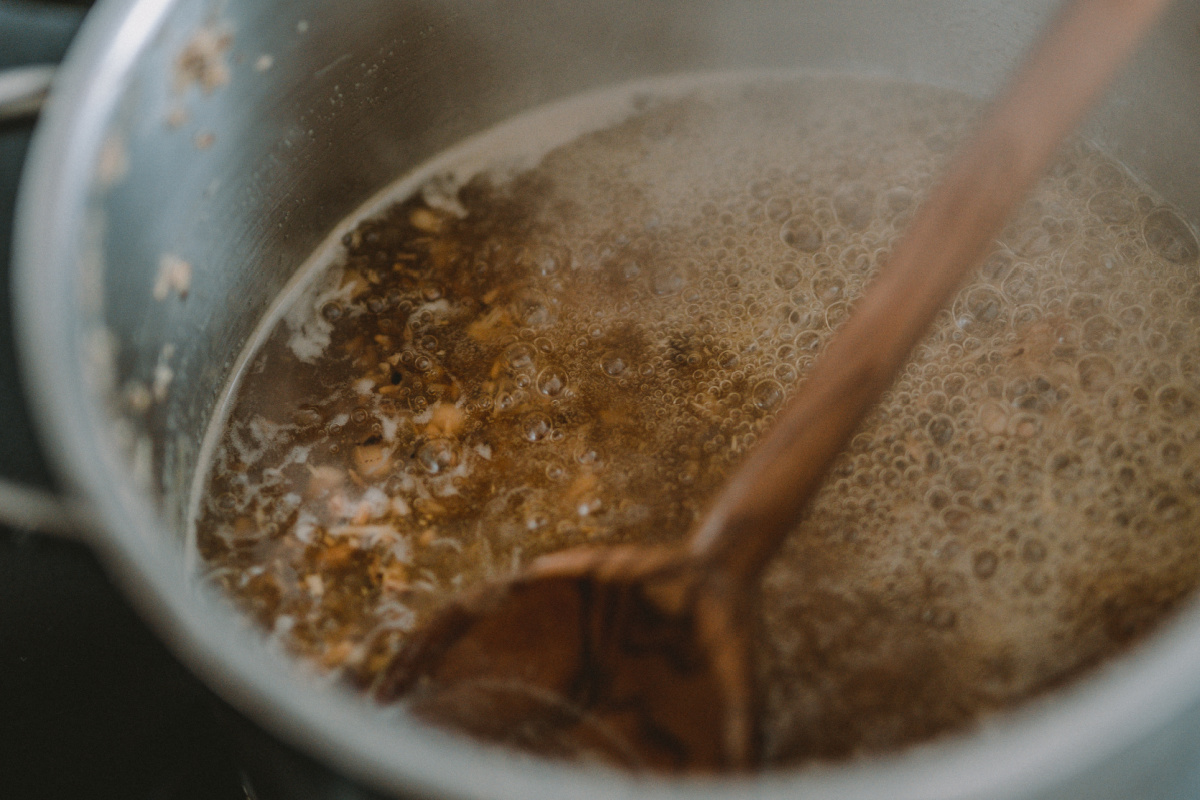
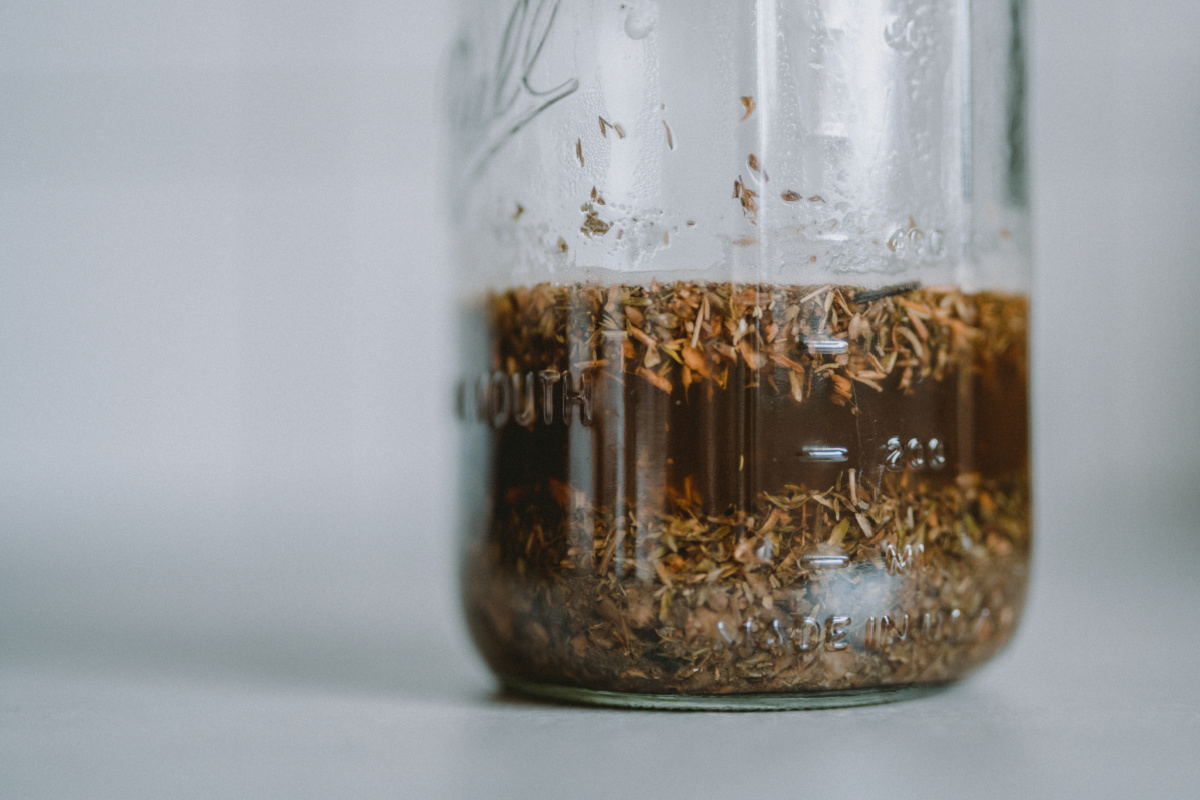
White Horehound – Marrubium vulgare (leaf)
This somewhat bitter mint family herb is famous for soothing wet coughs and moving along the thick, damp mucus associated with allergies. Horehound was such an important herb for the lungs and bronchial system, that it used to be called “Lungenkraut” (meaning “lung-herb”) in Central Europe. (Holmes, 1997).
Horehound leaves aid with thinning mucus and clearing it from the airways while quelling spasms (Groves, 2016). Once old mucus has been expectorated, new more active immune cell containing mucus can form. This is one example of how horehound works by shifting the environment of the body so that the body can restore vitality and balance (Wood, 2008).
Furthermore, the relaxing diaphoretic nature of horehound makes it a useful herbal ally for respiratory infections that include fever, painful swollen throat, hoarseness, and sinus mucus drainage. It also carries an analgesic action, that is it has been found to ease pain, particularly pain associated with coughs and sore throats (de Souza et al., 1998).
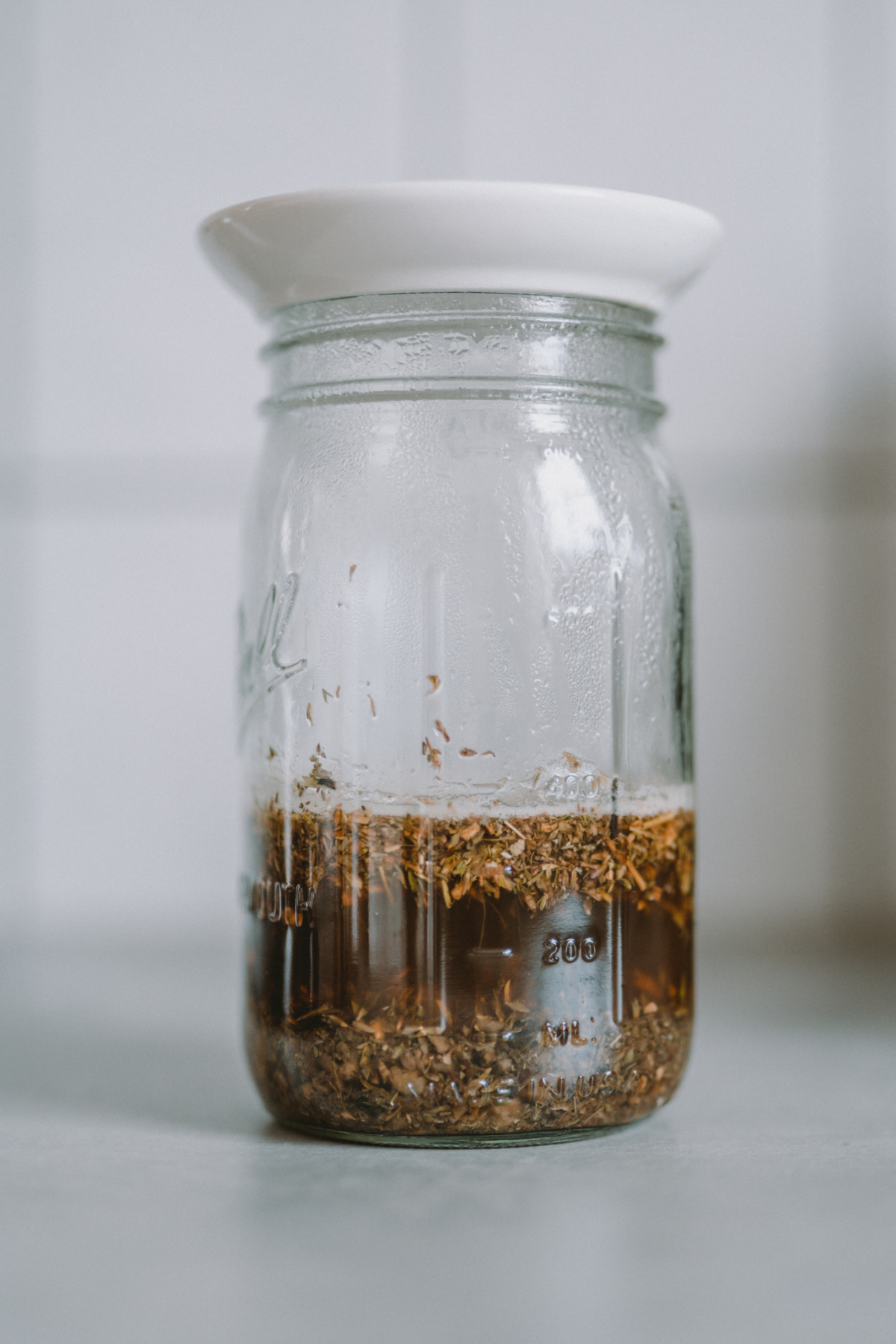
Elecampane – Inula helenium (root)
This beautiful sunflower relative produces pungent, balsamy roots, which were traditionally used to soothe bronchial spasms, infections, and to move and clear congestion.
Just like horehound and thyme, this herb has expectorant properties that thin and move mucus, making the mucus easier to eliminate. Therefore, elecampane is helpful for making coughs more productive and hence reducing congestion. In addition to being an excellent expectorant, it also soothes the tissue irritation and inflammation that results from coughing (Hoffmann, 2003).
Thanks to aromatic properties, elecampane root encourages movement in the respiratory tract, stimulating a better overall function and vitality. (Chevalier, 1996).
Ginger – Zingiber officinale (rhizome)
This pungent and sweet rhizome is great for adding warmth and a familiar flavor to this homemade cough syrup.
Ginger is quite the superstar when it comes to cough, cold, and flu support. Its antimicrobial properties, combined with the ability to thin mucus and support expectoration, along with its warming energetics make ginger an effective ally in working with colds and flu. Ginger’s volatile oils stimulate the immune system to fight bacterial and viral infections (McIntyre, 1996) and are so effective that it can abort the onset of upper respiratory infections (Holmes, 1997).
An herbal syrup is prepared by combining a concentrated decoction and/or infusion with honey. The honey works well for any kind of cough and increases the shelf life of the decoction. In addition, it can help increase the palatability of some herbs—
Children especially find syrups to be delicious!
2 tablespoons elecampane (Inula helenium) root, dried or fresh To Use: Take 1 tablespoon every 4 hours for adults, 1 teaspoon every 4 hours for older children. This syrup makes a good addition to your beverages! This is a great staple to have on hand before the onset of illness. When you are hit by a cough, it’s ideal to have your herbal preparations already made and ready to use. Although syrups are easy to prepare, it makes life so much easier to have one handy so you can have support as soon as possible!
REFERENCES
Bone, K., & Mills, S. (2013). Principles and practice of phytotherapy (2nd ed). London, United Kingdom: Elsevier.
Chevallier, A. (1996). The encyclopedia of medicinal plants. New York, NY: DK Publishing, Inc.
de Souza, M.M., de Jesus, R.A.P., Cechinel-Filho, V., & Schlemper, V. (1998). Analgesic profile of hydroalcoholic extract obtained from Marrubium vulgare. Phytomedicine, 5(2), 103-107. http://doi.org/10.1016/S0944-7113(98)80005-6
Groves, M. (2016). Body into balance. North Adams, MA: Storey Publishing
Hoffmann, D. (2003). Medical herbalism. Rochester, VT: Healing Arts Press.
Holmes, P. (1997). The energetics of western herbs (Vol. 1). Boulder, CO: Snow Lotus Press.
McIntyre, A. (1996). Flower power. New York, NY: Henry Holt and Company, Inc.
Tierra, L. (2003). Healing with the herbs of life. Berkeley, CA: Crossing Press.
Wood, M. (2008). The earthwise herbal: A complete guide to old world medicinal plants. Berkeley, CA: North Atlantic Books.
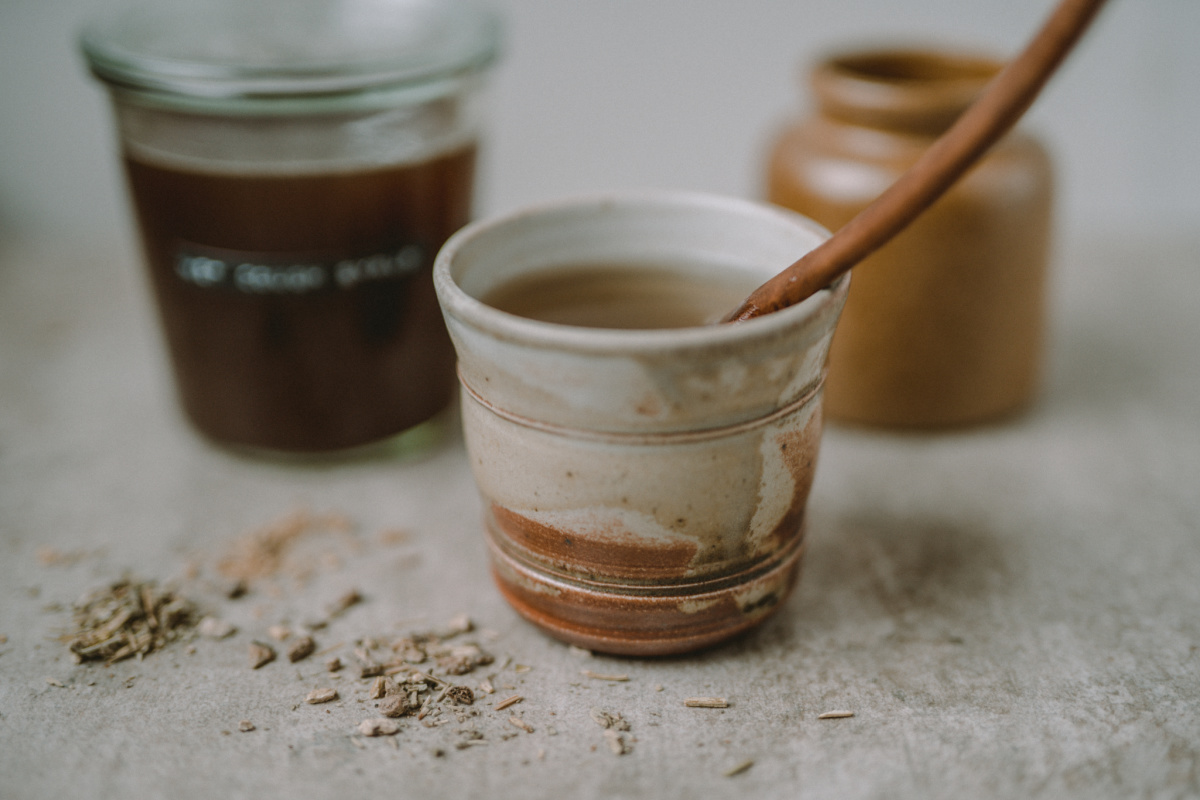
Homemade Cough Syrup for a Wet Cough
1 tablespoon ginger (Zingiber officinale) rhizome, dried or fresh
2 tablespoons horehound (Marrubium vulgare) leaf, dried or fresh
2 tablespoons thyme (Thymus vulgaris) leaf, dried or fresh
1 quart of water
1 cup raw, local honey
Combine the dried elecampane root with a quart of water in a saucepan.
Bring to a simmer and cook gently until the liquid volume reduces by half.
Keep an eye on the decoction to ensure it stays at a gentle simmer and to be sure to remove it from heat once the liquid volume is reduced to half.
Steep for at least 1 hour though not more than 8 hours.
(not heating above 110 degrees Fahrenheit).
Shelf Life: Up to 1-2 months in the fridge.
Simply make a quick cup of tea by adding a spoonful of syrup to hot water.
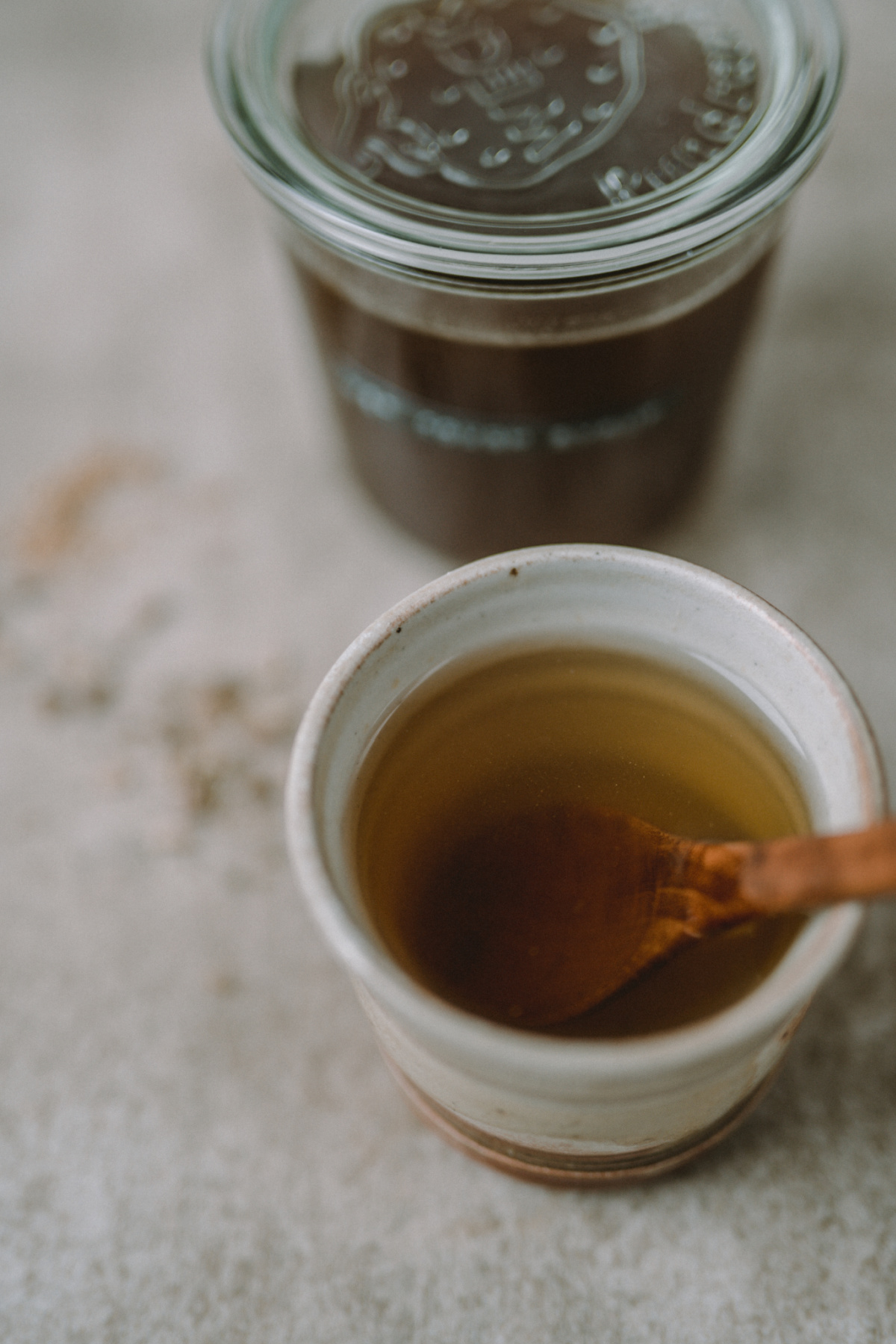
A Homemade Staple For Your Winter Apothecary
